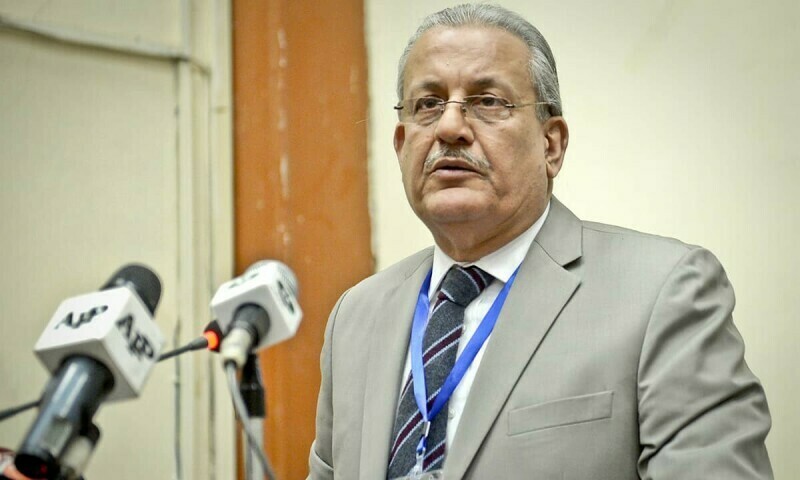Senior PPP leader Raza Rabbani denounced the National Assembly’s passage of the Prevention of Electronic Crimes (Amendment) bill on Friday, warning it would curtail freedom of expression, despite his party’s support for the legislation a day earlier.
The National Assembly rushed the controversial amendments to the country’s cybercrime laws yesterday amid protests, with PTI lawmakers and journalists walking out of proceedings. PPP members had voiced their support during the voting.
“The bill will further scuttle freedom of expression by setting up authorities under executive control,” Rabbani said in a statement released today.
The bill, a copy of which is available with Dawn.com, proposed a new provision, Section 26(A), to Peca, to penalise perpetrators of “fake news” online, that said: “Whoever intentionally disseminates, publicly exhibits, or transmits any information through any information system, that he knows or has reason to believe to be false or fake and likely to cause or create a sense of fear, panic or disorder or unrest in general public or society shall be punished with imprisonment which may extend upto three years or with fine which may extend to Rs2m or with both.”
The former Senate chairman added that the bill would give powers to the executive not only over the content of the message but also those operating social media platforms.
“Joint Investigation Teams including members of unnamed intelligence agencies will be formed to watch over journalists, social media and the general public,” he added.
He said it was unfortunate that the government did not take on board the relevant stakeholders before the passage of the bill. “In fact, it breached its commitments with various elected journalist bodies for consultation,” Rabbani said.
“Haste with which the bill was passed in the National Assembly is demeaning to the parliamentary process of legislation,” he added.
He said that there “is no apparent urgency to bulldoze legislation,” adding that “such bulldozing only goes to weakening an already redundant parliament.”
“The government can still make amendments by inviting the relevant stakeholders before the Standing Committee of the Senate when the bill is laid in that house,” Rabbani said.
“Controversial legislation is never good legislation,” he concluded.
Journalists and rights bodies have also criticised the government for passing the amendments without taking stakeholders on board.
PPP Human Rights Cell President Farhatullah Babar has also said that the changes to Peca were aimed at further stifling freedom of expression by setting up multiple authorities under executive control.
“This would [enlarge] the footprint of unaccountable intelligence agencies and [give] sweeping powers to the executive not only over the contents of the message but also the messengers, namely the social media platforms,” Babar added.
A joint statement by a coalition of journalists and media bodies also vowed to challenge the law in court and launch a protest movement.
‘Can’t post without consequences’
In defence of the legislation, Information Minister Attaullah Tarar visited the National Assembly’s press gallery yesterday, insisting the law would spare traditional media. He drew a distinction between “working journalists” registered with press clubs and social media users, saying existing mechanisms through Pemra’s council would continue to govern mainstream outlets.
“This legislation targets those who just pull out their phones and say whatever they wish,” Tarar said, referring to plans for a new National Cybercrime Investigation Agency. While acknowledging the rules were yet to be formulated, he said, “You cannot post anything on digital media without consequences.”





Leave a Reply